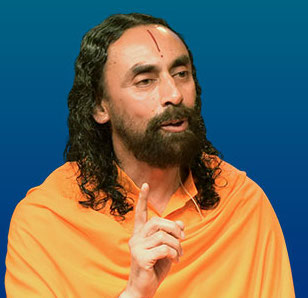Contribute
| Vedic Wisdom And Application |
Jagadguru Kripaluji Yog
09/08/2022
Vedic Wisdom and Application Challenge of the Month: Karm Yog – Science of Work Reflection Questions: What is Karm Yog? The word karm refers to the worldly duties or bodily dharmas that one performs in accordance with the prescribed rules of the Vedas. It includes responsibilities like taking care of one’s family, fulfilling professional obligations and following the social and ethical codes of conduct. It also includes actions we perform to take care of our own body (e.g., eating, sleeping, waking up, bathing, thinking, etc.). Shree Krishna explains to Arjun that that all material souls are bound by the nature of the three gunas (i.e., modes), and therefore, cannot remain without action, even for a moment (BG 3.5). न हि कशà¥à¤šà¤¿à¤¤à¥à¤•à¥à¤·à¤£à¤®à¤ªà¤¿ जातॠतिषà¥à¤ तà¥à¤¯à¤•à¤°à¥à¤®à¤•à¥ƒà¤¤à¥ | कारà¥à¤¯à¤¤à¥‡ हà¥à¤¯à¤µà¤¶: करà¥à¤® सरà¥à¤µ: पà¥à¤°à¤•à¥ƒà¤¤à¤¿à¤œà¥ˆà¤°à¥à¤—à¥à¤£à¥ˆ: || 5|| na hi kaÅ›hchit ká¹£haṇam api jÄtu tiá¹£há¹hatyakarma-ká¹›it kÄryate hyavaÅ›haḥ karma sarvaḥ praká¹›iti-jair guṇaiḥ [BG 3.5]. In his commentary on Chapter 3 of the Bhagavad Gita, Swamiji elucidates that all living beings are an integral part of God’s creation and have roles and responsibilities to fulfill. He says that the Vedas prescribe cyclical action, for example, performing yajna to please the celestial gods, who in-return bestow material gains in the form of rain, which then enhances production of food grains, which ultimately sustains life on earth... Click here to read more. Who is a True Karm Yogi? As stated above, a karm yogi is one who fulfills the bodily dharmas or duties but does with the spirit of seva or service for the pleasure of God. Swamiji beautifully explains, “Such a karm yogi, who performs worldly duties while keeping the mind attached to God, is not bound by karm even while performing all kinds of works. This is because what binds one to the law of karm is not actions, but the attachment to the fruits of those actions. And a karm yogi has no attachment to the fruits of actions.†The karm yogi who works in divine consciousness, offers the karm in sacrifice to God. When the consciousness is divine, everything that is offered in sacrifice, is divine. Yagya is not just the fire sacrifice but sacrifice of lower goals for higher goals. Human beings in ignorance do sacrifices for material gains and consequently, tend to veer toward celestial gods. Real sacrifice is when one offers oneself to God – through seva or service for His pleasure... Click here to read more. How can We Detach from the Outcome of Karm? As stated earlier, to act (i.e., do karm) is integral to the human form. In society, all of us have various duties to perform as determined by the family situation, social position, occupation, etc. While performing these duties, it is important to remember that we are neither the doer of an action, nor the enjoyer of its outcome. There are two important reasons for not claiming proprietorship to actions and their results. First, we souls are tiny fragments of the all-powerful God and our constitutional position is to serve Him for His pleasure. An analogy is that the hand is a part of the body, and its fundamental duty is to serve the body. By serving the body, the hand receives nutrition from the body and its needs are automatically met... Click here to read more.
You may also access this article through our web-site http://www.lokvani.com/

